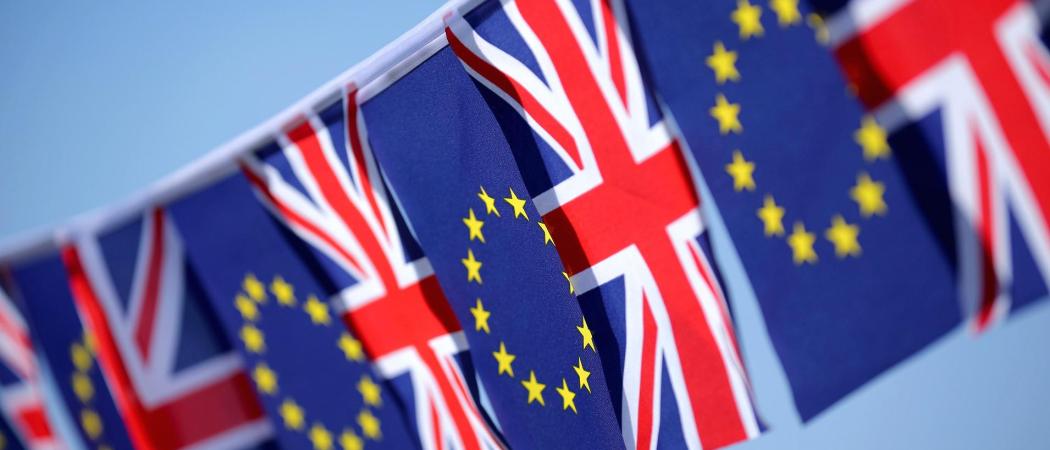Setting its objectives for the second stage of negotiations, the UK has confirmed it wants to be part of – and pay into - future Framework programmes and to be a member of EU agencies including EMA

The UK wants a far reaching research agreement with the EU and to remain a member of EU agencies after Brexit, prime minister Theresa May said, as the second phase of negotiations, dealing with the future trading relationship, gets underway.
“The UK is committed to establishing a far-reaching science and innovation pact with the EU, facilitating the exchange of ideas and researchers,” said May.
May also wants associate membership of industry regulators including the European Medicines Agency, European Chemicals Agency and European Aviation Safety Agency. “We would, of course, accept that this would mean abiding by the rules of those agencies and making an appropriate financial contribution,” she said.
Although a pledge to withdraw from the Euratom civil nuclear agency was one of the early definitive moves of the Brexit process, May called for close collaboration in this field in future in a speech in London last Friday.
But May also confirmed that the UK will leave the single market and the customs union, leaving the UK in ‘cake and eat it’ territory. While the EU recognises the contribution the country makes to regulatory agencies and EU research, it is not prepared to let the UK cherry pick the parts of EU membership it likes and ditch the rest.
Michel Barnier, the EU’s chief Brexit negotiator, said he welcomed the “clarity” May provided. He is to present the framework for the EU’s negotiating position for stage two of the Brexit talks and the post-Brexit transition period on Wednesday.
A big stumbling block for the EU will be the UK’s wish to establish a new trading relationship that maintains open access to the EU market. May said none of the EU’s existing trade agreements with third parties such as Norway and Switzerland are suitable models, because they require countries to pay into the EU budget but have no say on the rules.
However, a trade agreement such as that between the EU and Canada, or on World Trade Organisation terms, would significantly reduce UK access to EU27 markets. These options, “would mean customs and regulatory checks at the border that would damage the integrated supply chains that our industries depend on,” May said. “We need to look beyond the precedents and find a new balance.”
Her aim is to agree the “the broadest and deepest possible partnership” covering more sectors and cooperating more fully than any other free trade agreement, anywhere.
The prime minister struck a more conciliatory tone toward her European counterparts, but also challenged the EU position that any effort to arrive at a bespoke UK-EU trading arrangement and partnership after Brexit is cherry picking.
“The fact is that every free trade agreement has varying market access depending on the respective interests of the countries involved. If this is cherry picking, then every trade arrangement is cherry picking,” said May.
The prime minister also admitted that the European Court of Justice would continue to have some judicial oversight of the UK for a time after Brexit. “If we agree that the UK should continue to participate in an EU agency, the UK would have to respect the remit of the ECJ in that regard,” she said.
However, she rejected the totality of the EU’s regulatory and legal regime, saying, “The ultimate arbiter of disputes about our future partnership cannot be the court of either party.” For the longer term, an independent third party arbitration mechanism will have to be set up to handle disputes.
Scepticism still
For many in Brussels, May’s speech failed to ease scepticism about the UK’s pick-and-mix approach to talks.
Members of the European Parliament, which has a veto over the entire Brexit deal, said the UK needed to come forward with more substance.
“Theresa May needed to move beyond vague aspirations,” the European Parliament’s chief Brexit coordinator, Guy Verhofstadt, said. “We can only hope that serious proposals have been put in the post.”
Manfred Weber, a leader of the Christian Democrats in the European Parliament, and an ally of German chancellor Angela Merkel, said he was “even more concerned” after May’s speech. “I don't see how we could reach an agreement on Brexit if the UK government continues to bury its head in the sand like this,” he said.
Although not giving any further details, May also said the U. and the EU are close to agreeing the terms of a time-limited transition phase after the official Brexit date of March 29, 2019. That was good news for industry, which needs time to prepare for Brexit once the terms on which the UK is leaving the EU are known.





 A unique international forum for public research organisations and companies to connect their external engagement with strategic interests around their R&D system.
A unique international forum for public research organisations and companies to connect their external engagement with strategic interests around their R&D system.